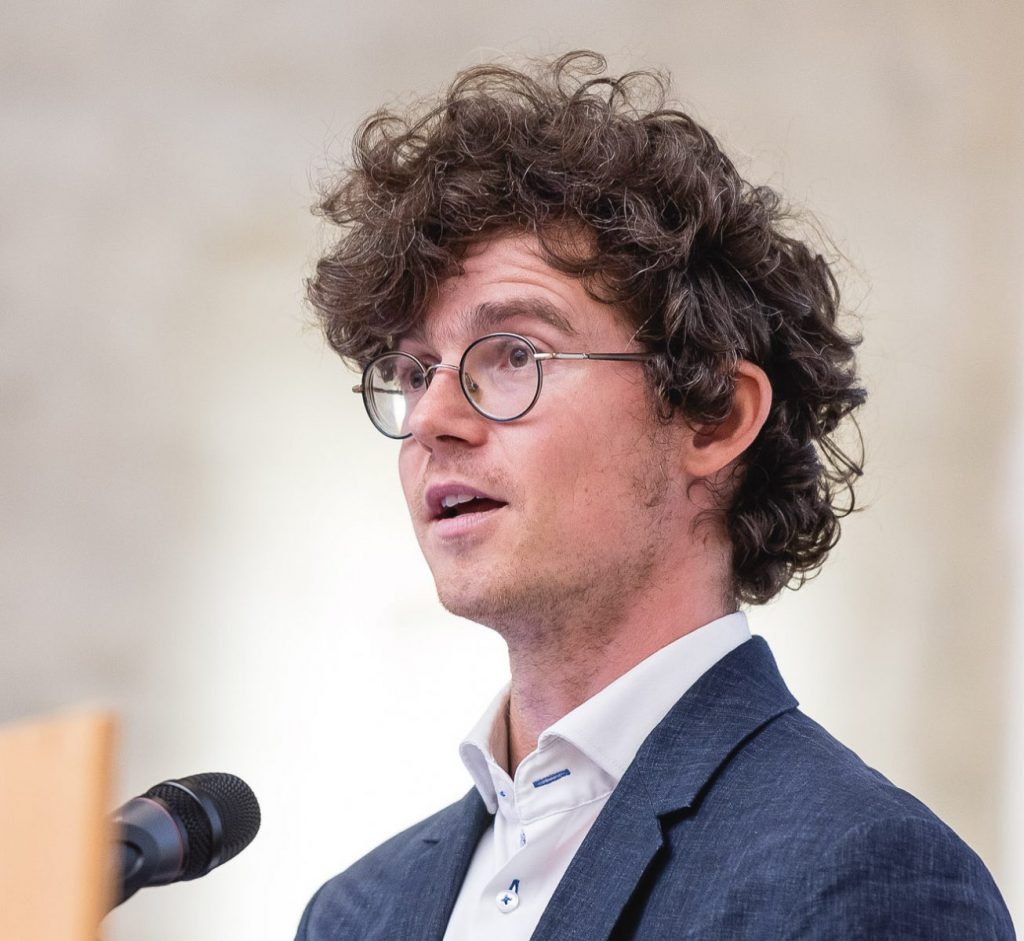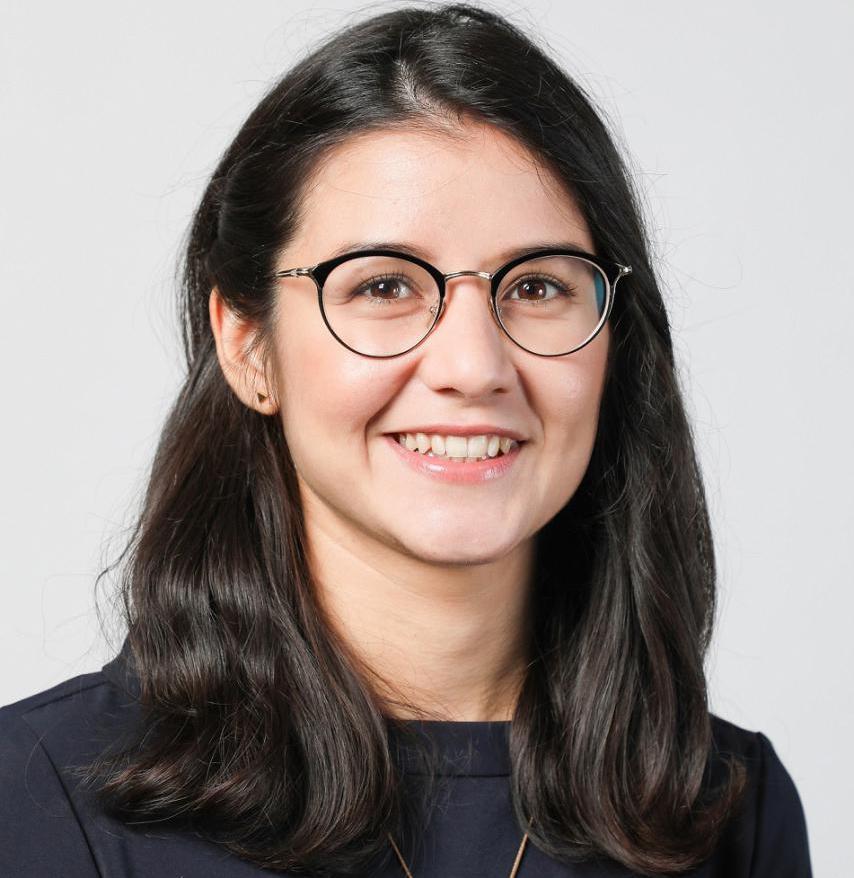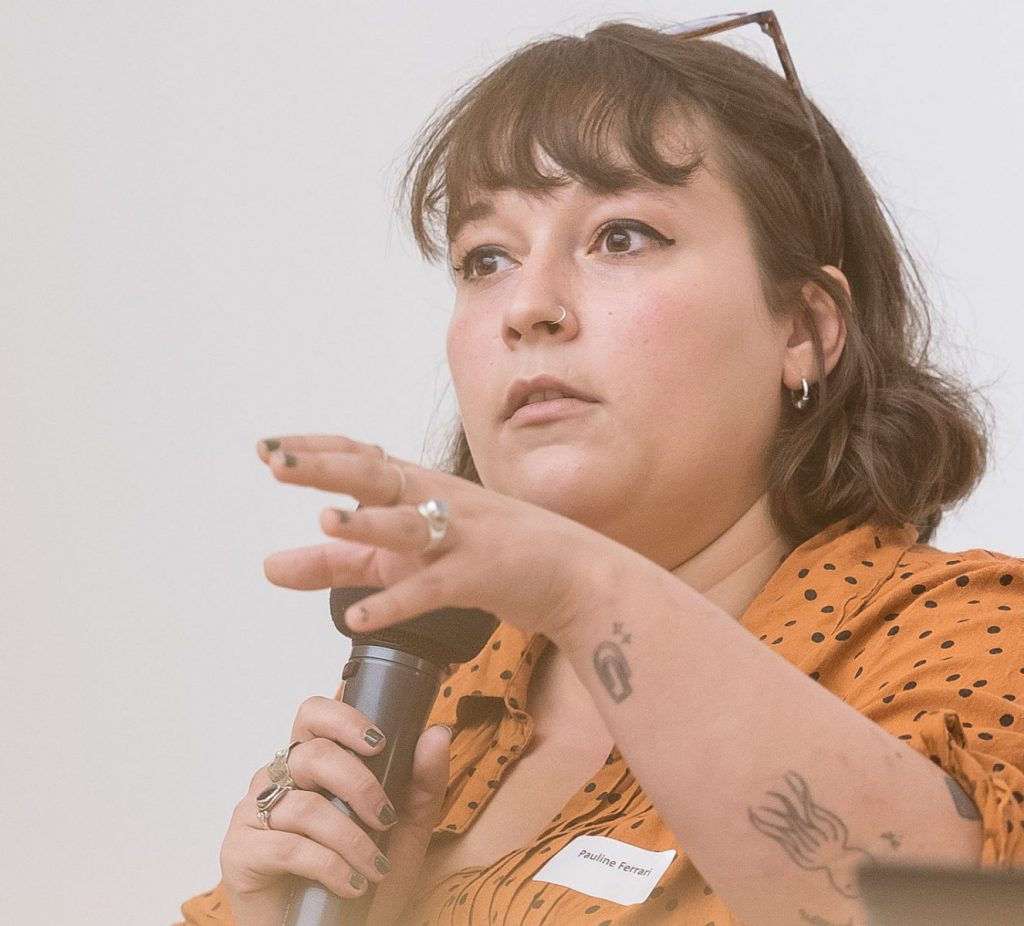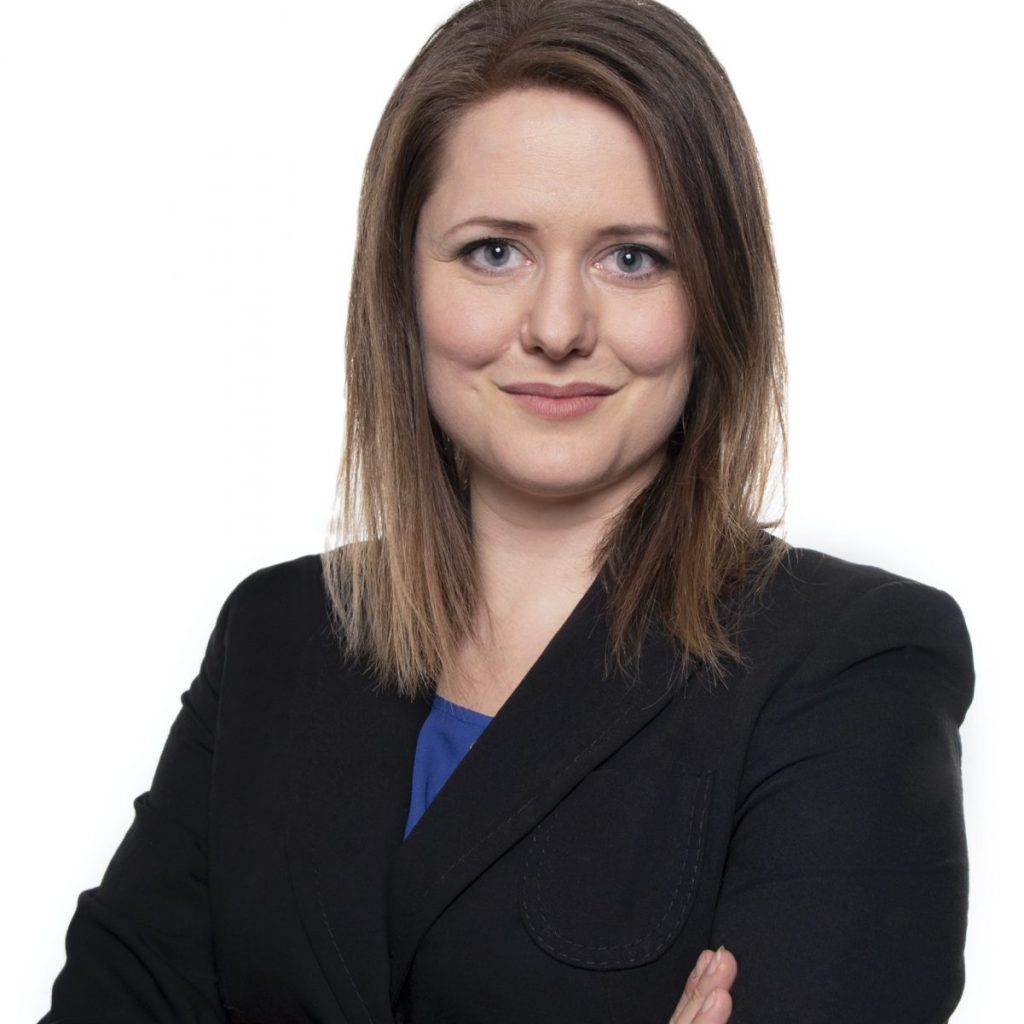Organisations
Introduction
Genre et numérique : une exigence de qualité?
Geneviève Le Fort

Geneviève Le Fort has been Vice-Rector for Quality at the HES-SO since 2016, with particular responsibility for equal opportunities and diversity. She began her professional career as an art historian specialising in pre-Columbian Mayan civilisation and then moved on to institutional functions in the field of higher education: firstly, she was responsible for equal opportunities at the University of Neuchâtel, and then deputy director of the Swiss Agency for Accreditation and Quality Assurance. Geneviève is particularly interested in issues of social responsibility of universities and their link with quality and institutional development.
Johanna Gapany

Johanna Gapany est une personnalité politique fribourgeoise, membre du parti libéral-radical et conseillère aux États depuis 2019. Membre de la Commission de la science, de l’éducation et de la culture (CSEC). Elle a étudie l’économie à la Haute école de gestion de Fribourg, et a séjourné au Canada et en Allemagne.
Après avoir travaillé au marketing d’une entreprise de coffrets cadeaux, elle est engagée comme chargée de communication à l’hôpital Daler.
Organisation locale
Hier et aujourd’hui à la HEIA?
Jean-Nicolas Aebischer

Anciennement professeur à la HEIA-FR, chargé de cours au département de chimie de l’Université de Fribourg, ancien responsable de la filière chimie de l’EIA-FR, et du Pôle « Chemistry and Live Sciences » de la Haute Ecole Spécialisée de Suisse occidentale (HES-SO) Jean-Nicolas Aebischer est directeur de la HEIA-FR depuis 2012.
Laurence Bielmann Dubied

Laurence Bielmann Dubied est la première femme ingénieure formée à Fribourg. Elle est actuellement Engineering Project Manager pour Elvexys SA
What’s coming next
Next Year in Lausanne
Jacques Genoud

Directeur Général de la HES-SO//Fribourg, ingénieur de formation, Jacques Genoud est également membre du comité de Swiss Engeneering où il soutient les carrières féminines. Il applique les notions d’un leadership plat et organise la relève académique introduisant et portant des projets tels que les Digital Skills.
Conférences
La transition numérique devra se faire avec les femmes (FR)
L’informatique joue un rôle croissant dans l’évolution de nos sociétés, mais les femmes sont largement sous-représentées dans ces métiers depuis plusieurs décennies. Il n’y a bien sûr aucune fatalité ou prédestination à cette division sexuée des savoirs : dans les années 1980, l’informatique était un métier plutôt féminisé, du moins, pour un métier technique. Si aujourd’hui les femmes occupent 30% des emplois dans les métiers du numérique, elles sont essentiellement dans les fonctions de support (tels que le marketing ou les ressources humaines). Dans les filières de pointe, comme l’intelligence artificielle ou la cybersécurité, elles sont moins de 15%. Il est temps de changer de paradigme et cesser de faire peser la responsabilité de cette discrimination sur les filles et les femmes qui ne sauraient pas s’orienter et qui n’oseraient pas aller en science. Les femmes ne s’autocensurent pas, elles subissent une censure sociale continuelle qui les détourne du numérique. Ce ne sont pas les femmes qui ont besoin de s’orienter vers « la Tech », mais le numérique qui a désespérément besoin de plus de mixité afin de nous inclure toutes et tous.
Isabelle Collet

Isabelle Collet est professeure à la Section des Sciences de l’éducation de l’Université de Genève où elle dirige l’équipe G-RIRE: Genre – Rapports intersectionnels, Relation éducative. Elle est également associée de recherche à l’Institut des Études Genre de l’Université de Genève.
Informaticienne scientifique de formation, ses recherches portent sur la réduction de l’écart entre les sexes dans les STEM (en particulier dans les technologies de l’information) et le développement de stratégies d’inclusion des femmes dans l’enseignement supérieur. En 2019, elle publie Les oubliées du numérique.
Visibility, media and networks
Flor Méchain

Flor Méchain, traductrice de formation, soutient les projets romands de Wikimedia CH. Elle aide les bénévoles à mener des projets de contribution sur Wikipédia et ses projets frères (notamment pour réduire le biais de genre!). Elle forme les employé-e-s des collections patrimoniales souhaitant diffuser leurs contenus sur les projets Wikimedia, ou les universitaires qui conçoivent des projets de divulgation scientifique.
Gala Mayí-Miranda

Gala Mayí-Miranda, historienne de l’art, est l’une des cofondatrices de Noircir Wikipédia, une initiative multilingue qui vise à combler le manque de références, d’articles et d’informations sur l’Afrique et ses diasporas, ses cultures et ses personnalités notables, dont les femmes, sur Wikipédia. Avec Ivonne Gonzalez, elle propose des ateliers ouvert-e-s à tou-te-s pour enseigner le fonctionnement de Wikipédia à ceux et celles qui souhaitent rejoindre leur projet, en collaboration avec des galeries, ou des musées. Elle forme également des étudiant-e-s.
Tables rondes
Entreprenariat : genre et numérique
Isabelle Cohen Solal

Isabelle Cohen Solal is a Business Consultant for Swiss and international institutions. After studying business in England and obtaining a Master’s degree in Finance in France, Mrs Cohen Solal was Manager of International Equity Funds and Diversified Funds in Paris (France). In 2000, she moved to Geneva and joined a private bank as relationship manager and head of product management. In 2006, she took over the traditional and alternative fund selection team for discretionary mandates of a foreign bank in Switzerland. She then joined Swisscanto to manage the French-speaking fund distribution entity and to look after institutional clients. Following the takeover by Zürcher Kantonalbank, she became Vice-President, head of banking relations for Latin Switzerland. Since 2019, she’s been carrying out specific assignments for institutional clients in the various fields of sustainable finance, strategy and business development. She is Board Member in various industries, also Chair of 100 Women in Finance Geneva, Business Angel and has been appointed Expert for Innosuisse, the swiss innovation agency.
Fabian Lütz

Fabian Lütz is currently a Researcher and PhD Candidate at the University of Lausanne (UNIL). Between 2015 and 2020, Fabian worked as a Legal Officer at the European Commission (DG Justice and Consumers, Gender Equality Unit). At the European Commission, Fabian worked on legal questions of gender equality and non-discrimination with a particular focus on issues of Work-Life Balance. Fabian obtained his legal education in France (Licence and Maîtrise en droit (Paris, 2006, 2007)), Germany (First State Exam, 2010; Second State Exam, 2013) and Belgium (LL.M. European Law and Economic Analysis, College of Europe, Bruges, 2011) and conducted a research stay as visiting researcher in the United Kingdom (Queen Mary University London, 2015). Previously, he worked for law firms in Germany and Belgium and completed his German Legal Training (Referendariat) inter alia with an international law firm, at the European Commission (DG Competition) and the Court of Justice of the European Union. His research interests include European Law, Gender equality and Non-discrimination law, Work-Life Balance, Competition Law, Regulation of AI/algorithms and behavioral economics.
Heather Cairns-Lee

Heather Cairns-Lee is Adjunct Professor of Leadership at IMD, an experienced leadership development professional whose work involves the design and delivery of executive learning, research into leadership and organizational development, group facilitation and executive coaching. She has designed and run programs for senior executives and management teams at top European and U.S. Business Schools and for many international organizations. Heather’s research focuses on the development of self-awareness, authenticity and sensemaking and the role of metaphor in break-through thinking and creativity.
Digitized intimacies: how gender and sexuality are shaped by algorithms and personal data collection processes
The ever-increasing use of mobile applications (apps) for dating, doing sports, health tracking, controlling fertility and more, is shaping the notion of intimacy and gender in direct relation to data and algorithmic processes that digitize a person’s body and emotions. This digitization influences the way individuals see themselves and interact with others in social contexts. Intimacy apps is a paradigmatic example of the construction of relational and bodily experiences with and within digital devices, as well as with our offline environment.
This roundtable invites multiple stakeholders from academia, industry and civil society to discuss around the following questions:
- What are algorithmic biases and how do they influence the presentation of woman’s body (queer / hetero) in apps?
- How do entrepreneurs tackle gender issues in the app’s design?
- In which ways do technologies affect sex workers’, influencers’ and more broadly users’ sexuality?
- What forms of empowerment can help members of civil society to take control of their personal data and their (digitiz
Coordination
Jessica Pidoux

Jessica Pidoux is a sociologist and holds a PhD in Digital Humanities from the EPFL. Her research focuses on the design and usage of
matching algorithmic systems in online dating. She is currently a postdoctoral researcher in citizen science at CEE, Sciences Po Paris, and director of the Swiss non-profit association PersonalData.IO where she builds with civil society participative methods for data
governance.
Fabio Monnet

Fabio Monnet is a Youth Internet Governance activist. Proponent of online privacy and equality. Sceptical of online monopolies and pro democratisation of the cyberspace. His background is in international affairs (UNISG) and environmental sciences (UNIGE). He is a member of the steering committee of the Swiss IGF, representing the voice of young people.
Marie-Pierre Vidonne

Marie-Pierre Vidonne est physicienne de formation. Après plusieurs années passées en R&D dans les secteurs public et privé, elle rejoint Hestia.ai en février 2021 en tant qu’analyste, responsable des subventions et bâtisseuse de consortiums. Elle est également contributrice bénévole sur le wiki de PersonalData.io depuis plusieurs années et sur les projets Wikimedia.
Elle s’intéresse particulièrement à l’écosystème des adtechs et des données personnelles liées.
Intervenant·es
Pauline Ferrari

Pauline Ferrari est journaliste spécialisée sur les questions de nouvelles technologies, de cultures et communautés web. Diplômée de l’Université de Montréal en Média, Culture et Technologies, en parallèle d’un Master en Journalisme à Sciences Po Toulouse, ai collaboré avec des médias comme Numerama, Vice, Korii, TETU, Louie Media, Konbini Techno et Konbini News ou encore Pixels du Monde.fr. Elle anime un podcast consacré aux sexualités et au sexe de la vraie vie, Comic Sans MST, lancé en janvier 2020.
Anna Jobin

Anna Jobin is a Senior researcher at the Alexander von Humboldt Institute of Internet and Society (HIIG) in Berlin. Previous affiliations include ETH Zurich, Tufts University and Cornell University. Her research focuses on the intersection of science, digital technology and society. She currently leads an international research project on « Artificial Intelligence » as a sociotechnical institution in politics, media and science. She is also the president of the extra-parliamentary Swiss Federal Media Commission, an inaugural member of the Swiss Young Academy, and a lecturer at the Management Center Innsbruck as well as at EPFL.

